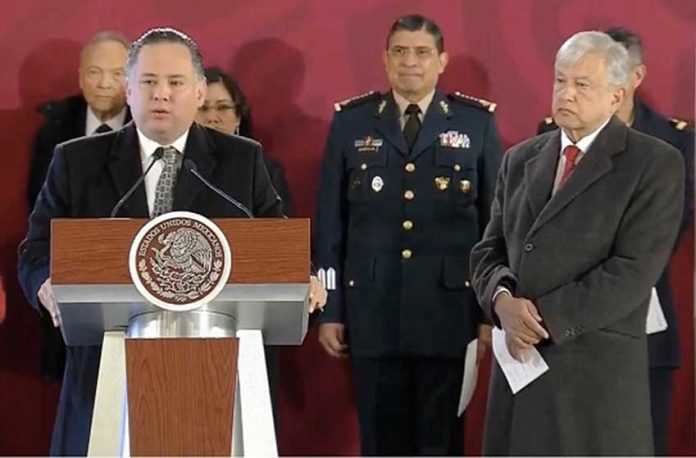Many gas stations located near petroleum pipelines sell stolen fuel, the federal government’s financial intelligence chief asserted today.
Santiago Nieto, head of the Financial Intelligence Unit (UIF), a division of the Secretariat of Finance (SHCP), said the sales of “a large proportion” of such stations exceed the quantities of fuel they purchase from Pemex, the state oil company.
“What does that mean? That differential can’t be [attributed to] anything else than the supply of stolen fuel,” he said.
Speaking at President López Obrador’s daily press conference, Nieto said that this month the UIF has analyzed information provided by banks about transactions made by gas stations that are located near Pemex pipelines.
“All reports related to gas stations were analyzed using two models. In most of the municipalities through which pipelines cross . . . deposits, particularly in cash, are being made . . . They’re reported by the banking system,” he said.
“. . . A large proportion of gas stations make deposits and transfers in cash that differ from the amount of funds with which they operate . . . This [analysis] has led us also to open a series of money laundering cases. In the 32 federal entities, we found more than 14,000 reports of unusual operations . . .” Nieto added.
The intelligence chief said the amount of money detected by the UIF that is linked to the commercialization of stolen fuel and “laundered in the Mexican financial system” was 10 billion pesos (US $526.8 million).
In 32 cases, the SHCP, the Secretariat of Security (SSPC) and the Federal Tax Administration (SAT) have taken legal steps to freeze accounts that have allegedly been used for the deposit and transfer of funds linked to stolen fuel, Nieto said.
“. . . Five specific cases have already been taken to the PGR [federal Attorney General’s office] with the idea to bring them before the courts quickly. In these cases . . . businessmen [are involved] but also public servants including a Pemex official, a former state deputy [and] a former mayor . . .” he added.
“The modus operandi involves not just the commercialization of stolen fuel but also the laundering of capital through the financial system,” Nieto said.
“We’ve detected international transfers of varying significant amounts that, in some cases, exceed US $2 million, purchases of luxury cars . . . We’ve also detected public servants who purchase property on an annual basis in their own names or those of family or people close to them. They buy airline tickets, jewelry, artwork to launder capital which comes from the theft of fuel.”
Source: El Economista (sp)
